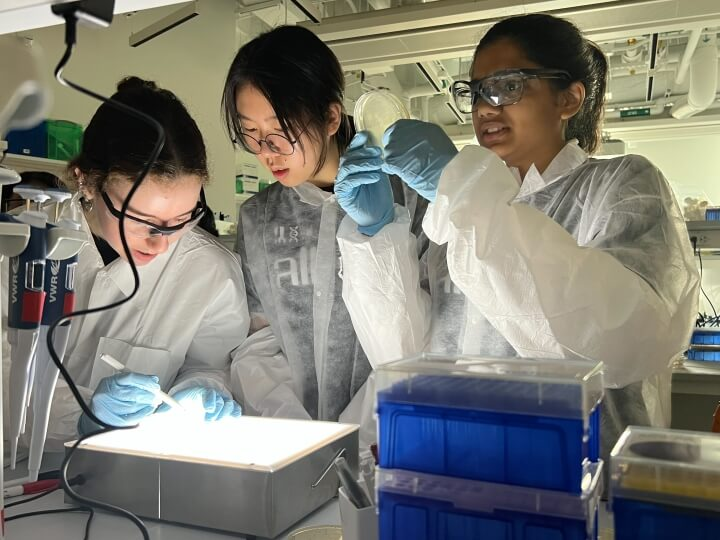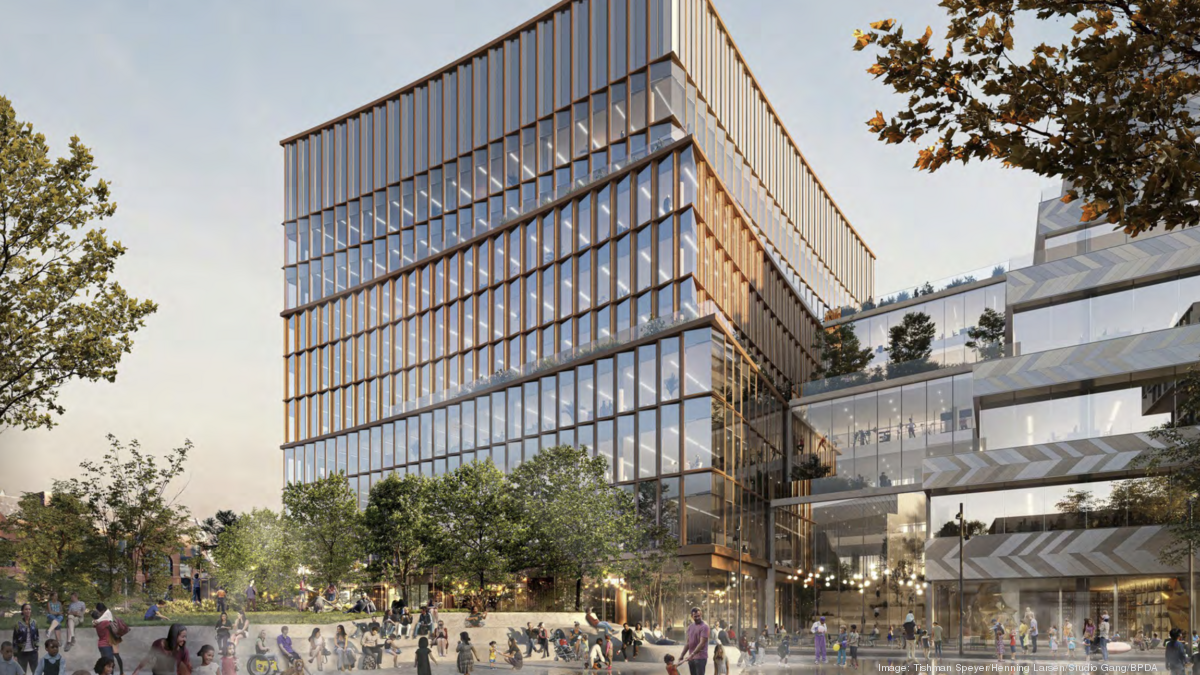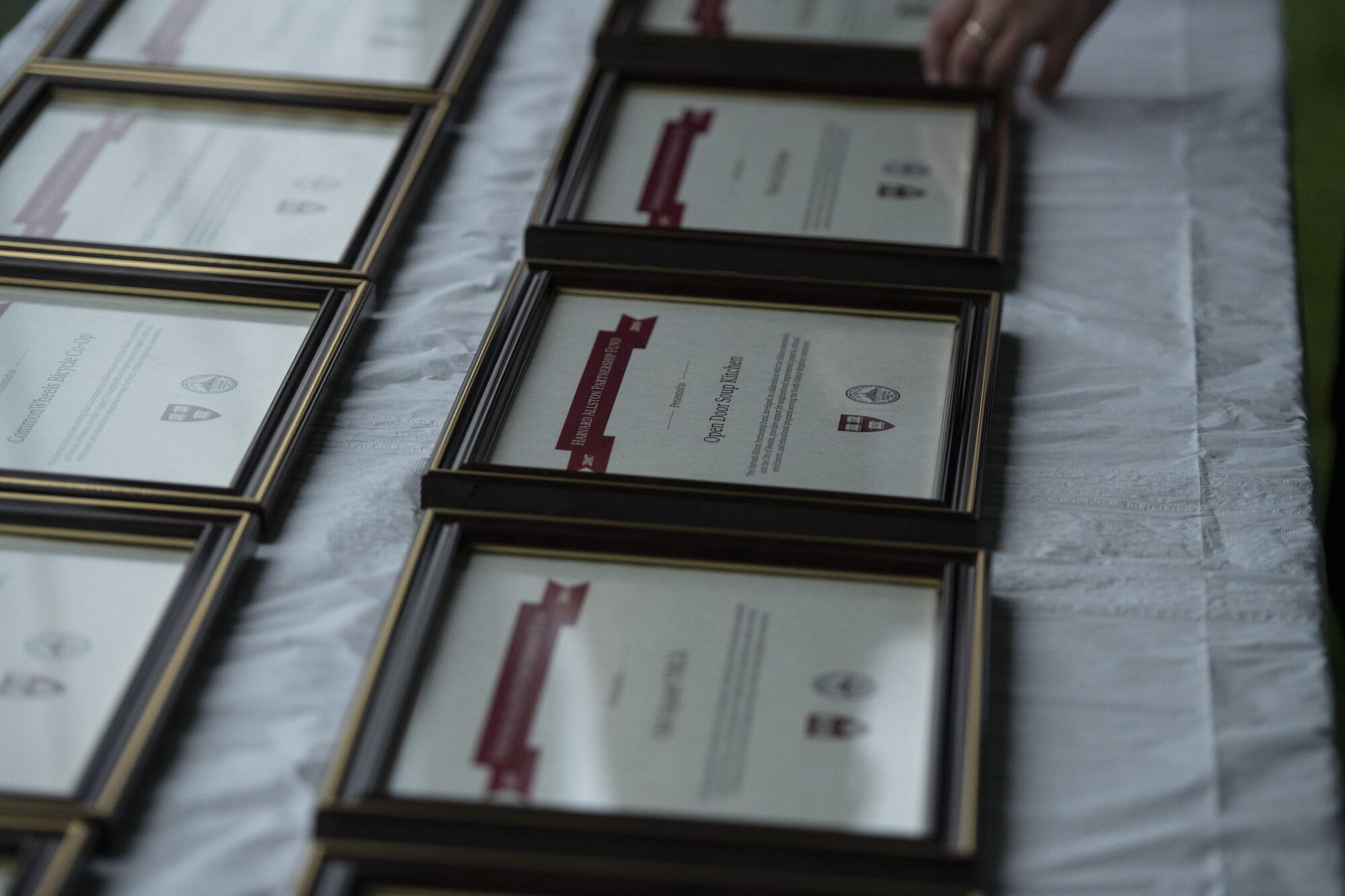
The Commonwealth Project is transforming the landscape of community engagement in St. Louis by fostering collaboration between Harvard students and local activists dedicated to social justice education. This innovative initiative enables interns to dive deep into community-led research, connecting with organizations like Black Men Build and ArchCity Defenders that tackle critical issues such as housing equity and racial justice. By participating in the Commonwealth Project, students gain invaluable experience that equips them with the skills and insights necessary for activism in St. Louis and beyond. The program not only highlights the importance of long-term relationships between students and communities but also emphasizes mutual learning and growth, a core principle of social justice initiatives. Through this project, Harvard interns are contributing to meaningful change while fostering their own understanding of the complexities surrounding social issues in the region.
The Commonwealth Project plays a pivotal role in bridging the gap between academic knowledge and real-world activism within the St. Louis community. This initiative invites students to engage in collaborative efforts that prioritize justice and cultural awareness, enabling them to work alongside local leaders who have a deep understanding of the region’s historical challenges. By emphasizing the significance of listening and learning from those directly affected by disparities, the project empowers a new generation of changemakers dedicated to social equity. Through immersive internships that focus on grassroots research and community support, participants are equipped not only with practical skills but also with a nuanced perspective on activism and its impact in urban settings. As a platform for transformative education, the Commonwealth Project highlights the importance of tailored approaches to addressing the diverse needs of communities facing systemic challenges.
The Commonwealth Project: Bridging Educational and Community Aims
The Commonwealth Project, initiated by Walter Johnson, is a beacon of hope and progress within the St. Louis community. It exemplifies a unique approach where Harvard students engage deeply with local organizations, addressing the long-standing economic and racial issues prevalent in the area. By fostering a collaboration that extends beyond transactional internships, the project promotes authentic relationships between students and residents, where both parties can learn from each other’s lived experiences. This initiative has become a critical part of social justice education, allowing students to understand the complexities of these societal challenges through direct engagement.
Participants in the Commonwealth Project are not mere observers; they are active contributors to community-led research and initiatives. This involvement generates impactful solutions rooted in the specific needs of the St. Louis community. By prioritizing mutual understanding over traditional hierarchies, the project aims to empower both students and local activists, creating a foundation for sustainable social change. Students like Saul Glist exemplify this model as they develop their professional journeys while simultaneously enriching the St. Louis landscape through their dedication and skills.
The Impact of Harvard Student Internships in St. Louis
Internships play a transformative role in the Commonwealth Project, offering students invaluable real-world experiences while directly benefiting the St. Louis community. Students spend significant time working with organizations like Black Men Build and ArchCity Defenders, each focused on different aspects of social justice and community empowerment. These internships not only provide practical skills to the interns, but they also offer an on-the-ground perspective of activism and advocacy. By immersing themselves in the local culture and issues, students can draw connections between their academic studies and real-world applications.
Moreover, these internships emphasize the importance of community engagement as part of the learning process. Interns such as A.J. Veneziano and Malik Sediqzad have illustrated how their work is intertwined with the community’s struggles for equity. They are not only gaining experience but also becoming advocates for change, learning essential lessons about resilience and the impact of collective action. This symbiotic relationship ensures that Harvard’s educational initiatives are not isolated from the broader context of social movements, reinforcing the connection between academia and community activism.
Exploring Social Justice Education through Community Engagement
Social justice education is at the heart of the Commonwealth Project, where students are taught to approach societal issues with compassion, curiosity, and a commitment to learning. Professors like Walter Johnson emphasize the significance of listening to community voices, an approach that encourages students to engage not just as students but as allies in the fight for justice. This shift in perspective is crucial in changing how future leaders see their roles within society. By participating in local activism, students learn the historical context of the challenges faced by marginalized communities and how to think critically about solutions.
The experience extends beyond academic learning; it becomes transformative for the students involved. For example, working alongside local activists exposes them to various narratives that are often overlooked in traditional educational settings. Through their internships, students gain a deeper understanding of how social justice efforts are expressed at the grassroots level and the complexities that come with them. This comprehensive approach ensures that social justice education is not only theoretical but deeply integrated with community needs and experiences.
Community-Led Research: A Model for Lasting Change
Community-led research is an essential element of the Commonwealth Project, reflecting a commitment to granting local voices a platform in addressing social issues. This research empowers residents to take charge of solutions that resonate with their lived experiences and challenges. By involving students in this process, the project fosters a collaborative environment where academic knowledge meets practical needs, which is crucial for effecting lasting change in the community.
Through this initiative, interns are engaged in ongoing dialogues with community members, allowing them to gather insights into the realities that shape local struggles and aspirations. This two-way exchange enriches their academic studies while simultaneously benefiting the community with relevant research findings. By prioritizing local perspectives in the research narrative, the Commonwealth Project serves as a model for how educational institutions can contribute effectively to social justice initiatives.
Activism in St. Louis: Lessons for Future Generations
The rich culture of activism in St. Louis serves as an educational platform for interns from the Commonwealth Project. As they engage with local organizations and leaders, they are exposed to a history marked by resilience and advocacy. Interns discover the legacy of activism that has shaped the city, witnessing firsthand the impact of grassroots movements. This experience cultivates an understanding of the ongoing struggles for social justice, illustrating how past efforts inform present actions.
Moreover, by connecting with seasoned activists, interns learn strategies and frameworks for effective advocacy. This not only prepares them to contribute meaningfully to their communities but also instills a sense of responsibility towards social justice that they carry forward into their future careers. The lessons derived from St. Louis’s activism highlight the importance of steadfastness and creativity in addressing systemic issues, ultimately shaping the interns into informed advocates for change in their own right.
Building Relationships: The Heart of the Commonwealth Project
At the core of the Commonwealth Project is the emphasis on building sustained relationships between students and the St. Louis community. Unlike traditional internship models that prioritize short-term engagement, this project fosters long-term connections that evolve over time. As students return year after year, they continue to deepen their understanding of the community’s challenges and resources, creating a foundation for impactful collaboration.
This relationship-building approach not only enriches the interns’ experiences but also empowers community leaders by integrating student energy and academic insights into local initiatives. By cultivating mutual respect and understanding between students and residents, the Commonwealth Project promotes a sense of shared purpose and commitment to social change. This model can inspire other educational institutions to adopt similar frameworks that prioritize community engagement and support sustainable development.
Understanding Racial and Economic Divides in St. Louis
The reality of racial and economic divides in St. Louis, epitomized by the Delmar Divide, provides a poignant backdrop for the Commonwealth Project. Interns are confronted with the stark inequalities that permeate the city, allowing them to critically analyze the systemic factors that contribute to such divides. This firsthand exposure serves as an educational catalyst, compelling students to prioritize issues of justice and equity in their work and discussions.
Through their internships, students gain insights into how these divides affect community dynamics, fostering a keen awareness of the intersections between race, class, and access to resources. Understanding these complex relationships is essential for future leaders aiming to address similar challenges in their own communities. The Commonwealth Project effectively translates these realities into educational opportunities that not only inform students but also inspire them to advocate for comprehensive solutions.
The Role of Activism in Shaping St. Louis’s Future
Activism in St. Louis plays a vital role in molding the future of the city, as local organizations lead efforts towards social justice and reform. The Commonwealth Project aligns itself with these movements, providing students with a platform to engage directly with ongoing initiatives. This connection allows them to comprehend the urgency and importance of collective action in addressing social injustices, making them better equipped to contribute to meaningful change.
As interns participate in various programs, they witness the power of organized activism to challenge oppressive systems and galvanize community support. By immersing themselves in this vibrant activist culture, they not only learn about the significance of grassroots mobilization but also develop a commitment to fostering change in their own future endeavors. St. Louis serves as an exemplary case of how activism can drive social progress, inspiring students to think critically about their roles as advocates in their respective fields.
Empowerment Through Education: Students as Future Leaders
Education plays a crucial role in empowering students within the Commonwealth Project. By participating in community-led initiatives, interns are equipped with knowledge, skills, and a sense of agency that strengthens their ability to effect change. The project’s focus on active learning encourages students to become leaders who not only understand the issues facing their communities but also devise innovative solutions to address them.
This empowerment is evident in the personal and professional growth experienced by participants like A.J. Veneziano and Malik Sediqzad. Through their internships, they discover their voices as advocates and gain critical insights into social justice frameworks. The experiences they encounter in St. Louis reaffirm their commitment to advocating for marginalized communities and highlight the need for a new generation of leaders dedicated to equity and justice.
Frequently Asked Questions
What is the Commonwealth Project and how does it relate to St. Louis community initiatives?
The Commonwealth Project is an initiative aimed at fostering student engagement in community-led research and activism in St. Louis. It connects Harvard students with local organizations and activists to address the city’s longstanding economic and racial challenges. Through collaboration on social justice education and cultural initiatives, the project seeks to build meaningful relationships between students and the St. Louis community.
How do Harvard student internships contribute to the goals of the Commonwealth Project?
Harvard student internships within the Commonwealth Project play a crucial role by allowing students to work closely with local organizations such as Black Men Build and ArchCity Defenders. These internships provide students with hands-on experiences in social justice education and community-led research, enabling them to understand and contribute to activism in St. Louis while also amplifying local voices and efforts.
What types of community-led research are facilitated by the Commonwealth Project in St. Louis?
The Commonwealth Project facilitates community-led research that focuses on social justice issues, housing rights, and economic disparities in St. Louis. By collaborating with local activists and organizations, students engage in meaningful research that seeks to address the historical and current challenges faced by disenfranchised communities, thereby promoting equity and social change.
What is the significance of social justice education in the Commonwealth Project?
Social justice education is significant in the Commonwealth Project as it empowers students to engage deeply with the realities of racial and economic inequality in St. Louis. The program emphasizes listening to community voices and understanding the local context, which equips students with the knowledge and skills needed to contribute effectively to activism and community-led initiatives.
How does the Commonwealth Project enhance student experiences in activism in St. Louis?
The Commonwealth Project enhances student experiences in activism by allowing them to immerse themselves in the St. Louis community for extended periods. Students collaborate with local organizations, learn from activists, and participate in initiatives that tackle pressing social issues. This experiential learning fosters personal growth and a deeper understanding of community dynamics, making activism a core component of their education.
What role do organizations like ArchCity Defenders play in the Commonwealth Project?
Organizations like ArchCity Defenders play a pivotal role in the Commonwealth Project by providing students with opportunities to engage in important social justice work. They focus on issues such as housing equity and civil rights, allowing interns to contribute to advocacy efforts while gaining valuable insights into the legal challenges faced by marginalized communities in St. Louis.
| Aspect | Details |
|---|---|
| Overview | The Commonwealth Project aims to address community-led justice and cultural initiatives in St. Louis. |
| Key Participants | Professors and students from Harvard, including Saul Glist and interns like A.J. Veneziano and Malik Sediqzad. |
| Community Focus | Collaborating with organizations like Black Men Build, ArchCity Defenders, and EHOC which tackle social inequality. |
| Student Experience | Interns engage deeply with local communities and gain insights into racial and economic issues. |
| Learning Approach | Students learn through listening and understanding community concerns rather than asserting leadership. |
| Historical Context | The project emerged from conversations aimed at fostering solidarity and mutual learning with local activists. |
| Broader Implications | St. Louis serves as a model for examining systemic issues and potential solutions across the United States. |
Summary
The Commonwealth Project represents an innovative approach to fostering community engagement and social justice through collaborative efforts between students and local organizations in St. Louis. By immersing themselves in the city’s intricate socio-economic landscape, participants not only contribute to meaningful change but also gain invaluable insights into the realities of community struggles. This program stands as a testament to the power of education, activism, and solidarity, highlighting how academic institutions can play a crucial role in addressing longstanding issues within urban settings.







